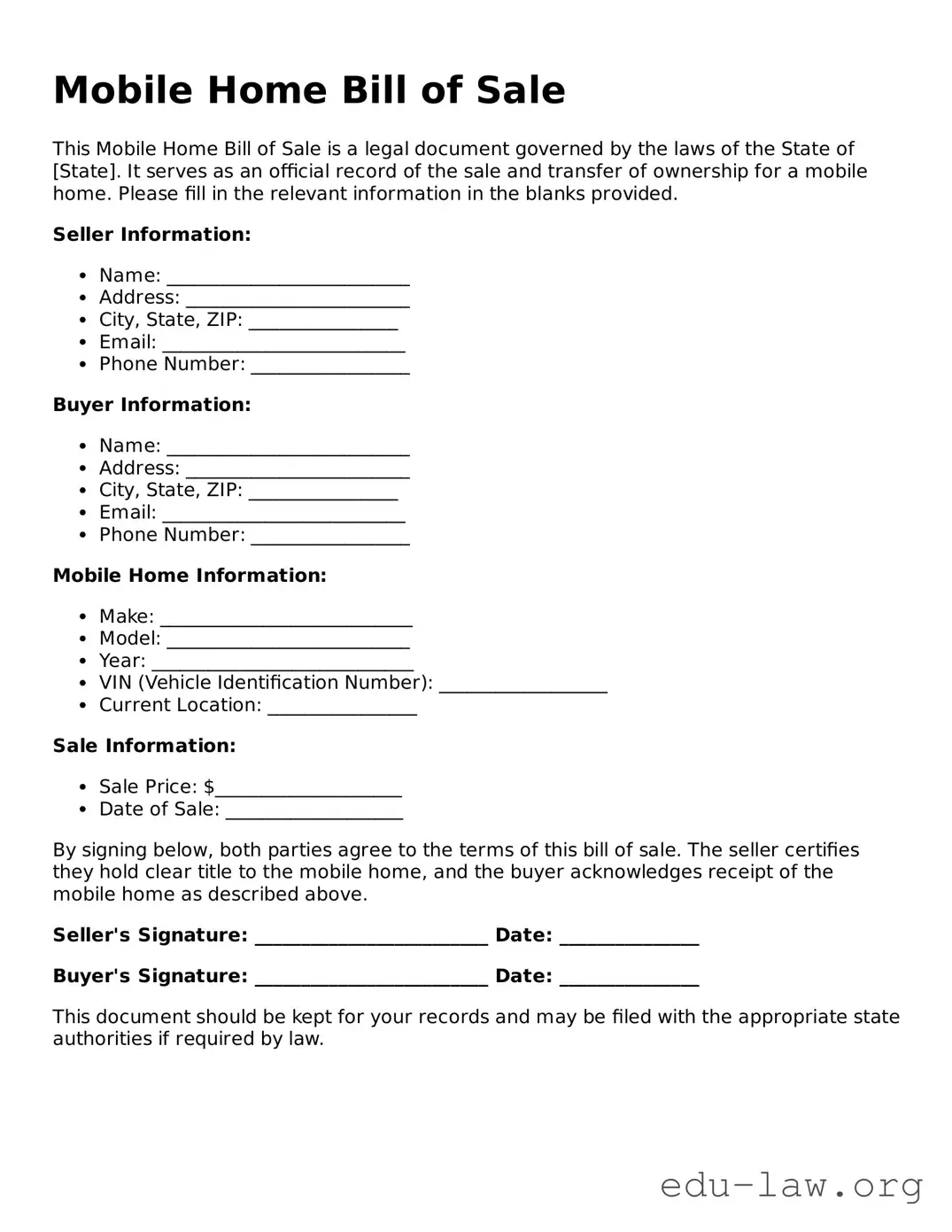What is a Mobile Home Bill of Sale?
A Mobile Home Bill of Sale is a legal document that transfers ownership of a mobile home from one party to another. It serves as proof of the transaction and outlines the details of the sale, including the purchase price and any conditions agreed upon by both the seller and the buyer.
Why is a Mobile Home Bill of Sale important?
This document is important because it provides a clear record of the sale. It protects the interests of both the buyer and the seller. For the buyer, it proves ownership and can be used to register the mobile home with local authorities. For the seller, it verifies that the sale has taken place and limits any future liability related to the property.
What information is typically included in a Mobile Home Bill of Sale?
A Mobile Home Bill of Sale generally includes the names and addresses of the buyer and seller, a description of the mobile home (such as make, model, year, and Vehicle Identification Number), the sale price, and the date of the transaction. It may also include information about any warranties and payment terms, if applicable.
Do I need a notary public for a Mobile Home Bill of Sale?
While it's not always required to have a notary public, having the document notarized can add a layer of authenticity and credibility. Some states may require notarization for the Bill of Sale to be valid, especially if the mobile home will be registered with the Department of Motor Vehicles or another authority.
Can I use a generic Bill of Sale form for a mobile home?
You can use a generic Bill of Sale form; however, it is advisable to use a form specifically designed for mobile homes. Mobile homes have unique considerations that may not be addressed in a general form. A specialized form can help ensure that all necessary details are included and comply with state regulations.
What if the mobile home has a lien or loan against it?
If there is a lien or loan associated with the mobile home, it is essential to disclose this information in the Bill of Sale. The seller should clear the lien before the sale or indicate that the buyer will assume responsibility for it. Buyers should proceed cautiously and verify the status of any liens before completing the purchase.
Can the Bill of Sale be used as a title for the mobile home?
No, the Mobile Home Bill of Sale cannot be used as a title. It is a record of the transaction and proof of ownership transfer but does not serve as legal title. To obtain a title, the buyer must typically file the Bill of Sale with the appropriate state agency, such as the Department of Motor Vehicles.
What happens after I complete the Mobile Home Bill of Sale?
After completing the Mobile Home Bill of Sale, both parties should keep a copy for their records. The buyer may need to follow specific steps to register the mobile home and obtain a title in their name. Additionally, ensure that any necessary fees and taxes are paid promptly to avoid future complications.
